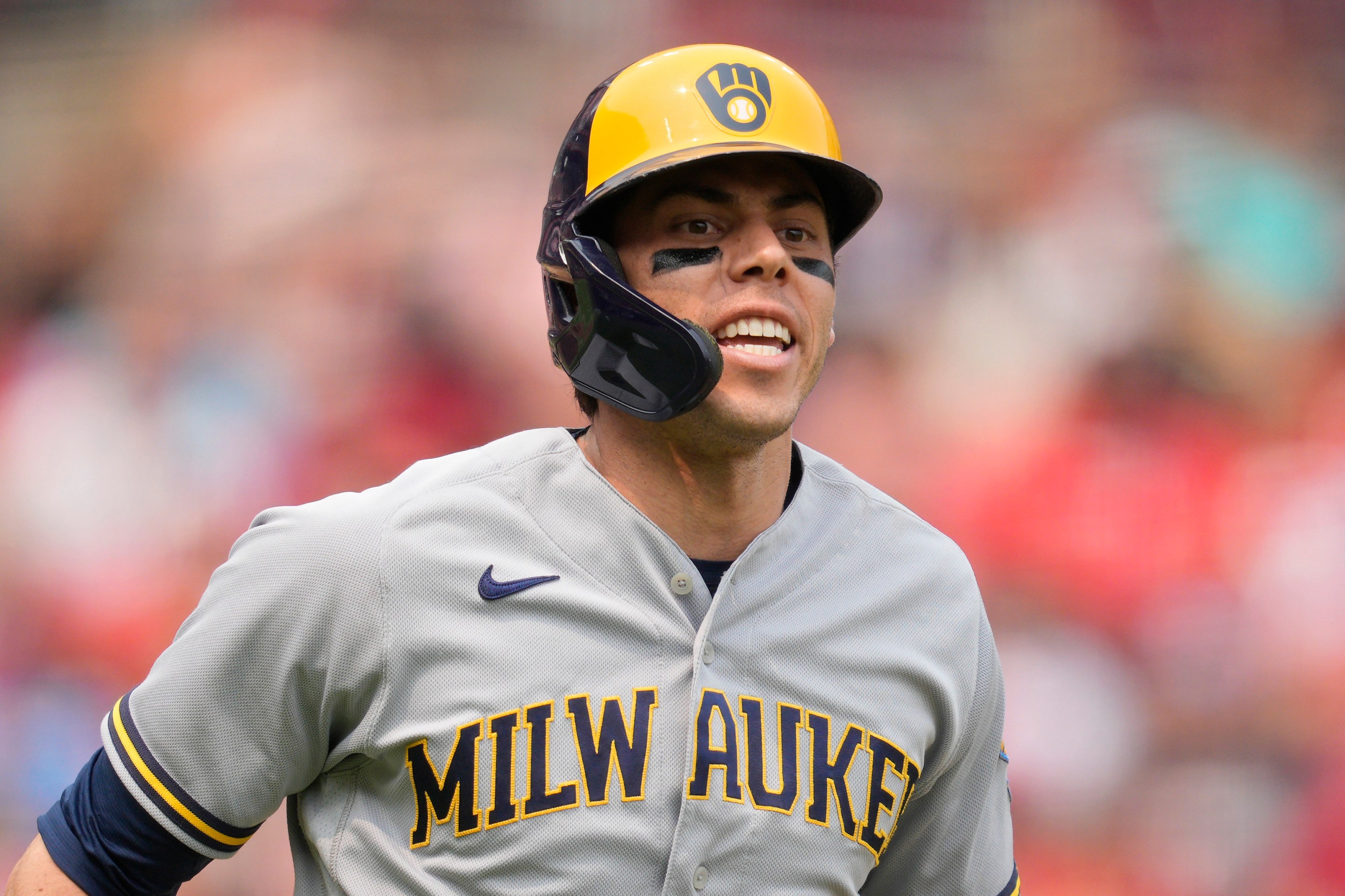The highs and lows of Christian Yelich’s career came in such quick succession and at such odd times that it’s been hard to separate the signal from the noise. It is true that when he fouled a pitch off his kneecap to end his season in September of 2019, the reigning NL MVP was leading the NL in batting average, on-base percentage and slugging percentage, and on pace for one of the best offensive seasons in MLB history. It is also true that baseball’s run-scoring environment that year was, more or less, the moon. It is true that he became a sad three-true-outcome shell of himself in 2020, when he struck out in more than 30 percent of his plate appearances and saw his batting average fall 100-plus points. It is also true that 2020 was a fake nonsense year very few people care about.
A fuller picture of Yelich, if not a satisfying one, emerged in the next two seasons. Rather than prove the 2020 performance to be a blip, he repeated it. Immediately after the Brewers signed their franchise player to a nine-year, $215 million extension, he had become just some guy. Actually, he had become the "What happened to that guy?" guy. Baffling declines suck in their own way, but what felt bad about this version of Yelich was that it made some sense: His total lack of power, just nine home runs in 2021 and 14 the following year, could be explained by a long history of back issues, one that began when he was a prospect in the minor leagues. He was right around the dreaded age when this sort of atrophy isn't uncommon. You could examine the evidence—three straight seasons of a mid-.700s OPS, discouraging batted ball data, apparent reluctance to swipe bags, assorted IL stints—and conclude that this was it. There was no better, recovered version of Yelich in store.
A better, recovered 31-year-old version of Christian Yelich hit his 13th home run of the season against the Reds on Sunday, his second in as many games; this leaves him just one dinger away from tying his total from last year. He has gone from sore back to so back. Or sort of back, anyway. Not all the way back, not in MVP form, but still as a pretty great power-speed threat who's been one of the best hitters in baseball for the last two months. (Elsewhere in the division, fellow fallen-off-the-face-of-the-Earth-NL-MVP Cody Bellinger is enjoying a little revival season of his own.) "He’s turned it into where every at-bat is really tough," Brewers manager Craig Counsell said after a three-hit night for Yelich against the Mets in late June. "I’m definitely looking for his spot to come around in the lineup, because it seems like something’s going to happen right now." Even his defense in left field has improved, from the 12th percentile in Outs Above Average last year to the 83rd percentile this year. If I were the type of person concerned with All-Star Game rosters—say, a seventh-grade child—I might write that he'd been snubbed.
This production—an .850 OPS and 21 stolen bases on the season—is much more in line with what Brewers fans hoped for when Yelich signed his extension before the 2020 season. It is also very much what their crummy offense needs at the moment. The Brewers' pitching staff celebrated an impressive milestone after their win over the Reds on Saturday: It was their third consecutive shutout of Cincinnati. They pitched 27 scoreless innings against one of the hottest teams in baseball! Quite an accomplishment! And yet, anything less would not have sufficed. The total run differential, across the three shutouts, was five: Two 1-0 games and a 3-0 win that must have felt like a real barn-burner by Milwaukee's standards.
It's a testament to the pitchers, and I guess to the profound sorriness of the NL Central, that a team averaging fewer runs than anyone in the National League sits in first place right now. Yelich, the rare leadoff man with a team lead in both runs scored and RBIs, might in any other circumstance take on a hint of Ohtani-esque tragedy. But right here—on this team, in this division, as this version of himself—he is exactly enough.






